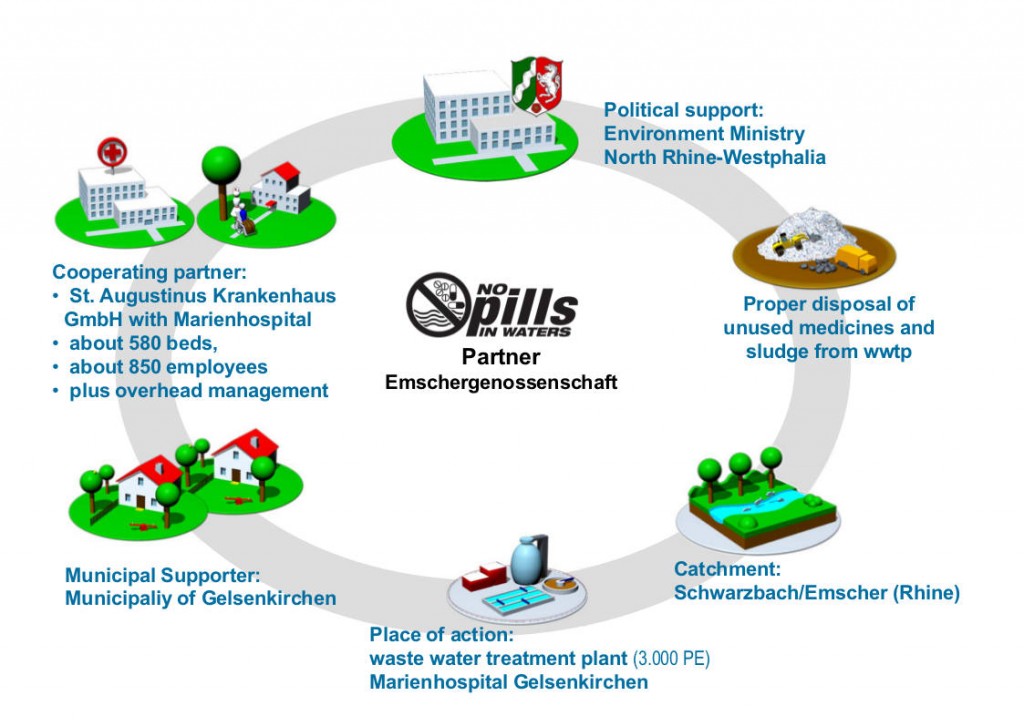noPILLS in Gelsenkirchen, Germany
Video shows waste water treatment at Marienhospital
Read more.
Association of SHI Physicians Westfalen-Lippe runs workshop about pharmaceutical residues in water
Read more.
Test series on ferrate treatment techniques
Read more.
Site Visit and Research Plan at the Technical Center of Emschergenossenschaft in Dinslaken, Germany
Read more.
noPILLS at the Marienhospital in Gelsenkirchen
The Emschergenossenschaft as a public water board is not just operating 4 large regional waste water treatment plants within the Emscher catchment area with 2.4 Mio. inhabitants but is as well operating a hospital waste water treatment facility at Marienhospital Gelsenkirchen, established in the period 2008 to 2012.
This facility was realized by the Emschergenossenschaft in the context of a EU funded cooperation of 6 partners from 6 European countries in the PILLS project (see www.pills-project.eu ).
This facility is unique in Europe: it is not just treating the concentrated waste water of the Marienhospital by applying a variety of different technical processes but the Emschergenossenschaft also received the permission to drain the facility`s effluent into an open water body. The chosen technologies - membrane filtration, ozone, powdered activated carbon and-, sand filtration - can be combined in 10 different orders. The findings from the scientific investigations show that, even after the closure of the PILLS project, there is need to continue with the research.
So within the framework of noPILLS the focus is how far the treatment efficiency, the combination of technologies and the expense to operate the facility is depending on the input of active substances?
Here the questions appears: May some rather problematic substances be substituted by more benign without limiting the therapeutic success of patients in the hospital? May this substitution have positive effects on operation and treatment efficiency, when examening at energy demand, materials used or staff deployed?
The unique feature of the Gelsenkirchen facility enables the Emschergenossenschaft to continue with research in this direction and to integrate the expertise of the European partners as well as benefit from their assistance.
Involved stakeholders in project area




